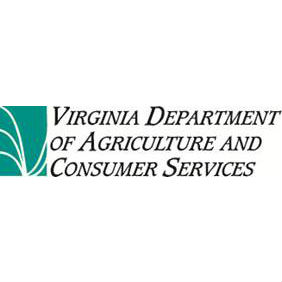
In Virginia, honeybees are essential pollinators for about one-third of the state’s fruit and vegetable crops. That is why Gov. Ralph Northam declared June 17-23 as Virginia Pollinator Week.
The state celebration coincides with National Pollinator Week, established 12 years ago by the U.S. Senate. The goal of pollinator week is to explain the essential role that pollinators play in our environment and agriculture and how the public can play a part in protecting them.
“Bee populations, as well as the populations of other pollinators such as birds, butterflies, bats and beetles, are declining dramatically. For honey bees alone, this decline is between 30 to 40 percent each year,” said Keith Tignor, State Apiarist, Virginia Department of Agriculture and Consumer Services. “Other bee populations are on the decline, such as the rusty patch bumble bee which was recently placed on the federal endangered species list. Without adequate pollination, Virginia could experience a significant reduction in its harvest of apples, alfalfa, berries, cucumbers, melons, squash, peaches and pumpkins.”
The following are a few ideas to help attract, protect and increase the populations of pollinators in Virginia:
- Plant flowers in a variety of colors and shapes to attract pollinators to your garden, window box or hanging basket. The BeeSmart Pollinator Gardenerapp is a great aid to get started or go topollinator.org/guides and enter your zip code for an area-specific guide.
- Support your local bee keeper by buying local honey.
- Set-up a pollinator refreshment station in your garden. Add water or sugar water (never use artificial sweeteners) in a shallow bowl or pie tin with rocks or marbles for the bees to stand.
- Learn more about how to interact with bees so that you can co-exist.
- Help raise awareness about pollinators by being an advocate.
- Become a bee keeper and set up your own hive. State Apiarist Keith Tignor or a local beekeeping association are great resources for more information.
For additional information, Virginians should contact Tignor at 804.786.3515 or by email at[email protected].










